To access this page, you will need to log in or become a member.

by Brenda Bernstorf | Montessori Administrators, Montessori Teachers, School Leadership, The International Montessori Council
by Brenda Bernstorf Leadership is often a matter of common sense but as Voltaire is attributed for saying, “Common sense is not so common.” Montessori classrooms are gentle, peaceful environments where grace and courtesy are normal. Grace and courtesy are the foundation for common sense leadership and must extend from the administrative office to the […]
To continue reading, you will need to choose a subscription plan.

by Tim Seldin | Montessori Administrators, School Identity, The International Montessori Council, Uncategorized
The Montessori Foundation encourages schools to clearly set down their core philosophy and beliefs into a very specific formal written document, The Blueprint, and thereafter to use it as a road map in making decisions, setting new policy, and evaluating the educational program. This document explains the process of initially developing the Blueprint for the […]
To continue reading, you will need to choose a subscription plan.

by The Montessori Foundation Staff | Family Resources, Free Reads, MFA, Montessori Education, Montessori Family Life, Montessori Parenting, Parent Education
When Varnadore “Willie” Williamson first came to JABA’s Adult Day Healthcare Center he was still independent. Later, however, his Alzheimer’s had progressed to the point where he could no longer go to the bathroom by himself. He couldn’t unbuckle his belt. Ellen Phipps, director of the healthcare center, went next door to the Montessori School […]
To continue reading, you will need to choose a subscription plan.

by Paul Epstein, PhD | Brain Development, Emotional Intelligence (EQ), Emotionally Healthy Children, Family Resources, MFA, Montessori Education, Montessori Family Life, Montessori Leadership Magazine Online Issue, Montessori Parenting, Montessori Teachers, The International Montessori Council
This article appeared in Montessori Leadership in 2010 Test taking and test scores have become the singularity of education. Teacher performance and, in turn, school house performance, is validated primarily through children’s test scores. The rationale is that teachers are teaching, performing if, and only if children achieve high test scores. The justification is, finally, […]
To continue reading, you will need to choose a subscription plan.

by Alfie Kohn | MFA, Montessori Education, Montessori Family Life, Montessori Parenting, Montessori Teachers, Parent Education
This article was written by Alfie Kohn and included here with the author’s permission. Download File You can tell a lot about a teacher’s values and personality just by asking how he or she feels about giving grades. Some defend the practice, claiming that grades are necessary to ”motivate” students. Many of these teachers actually […]
To continue reading, you will need to choose a subscription plan.

by Tim Seldin | Child's Work, MFA, Montessori Education, Montessori Teachers
Portfolios of children’s work can make it much easier for parents to get a sense of their children’s progress. Parents often feel frustrated with Montessori because, with no text and workbooks, they feel like they haven’t a clue what their child may, or may not, be learning in school. American parents don’t like to experiment […]
To continue reading, you will need to choose a subscription plan.
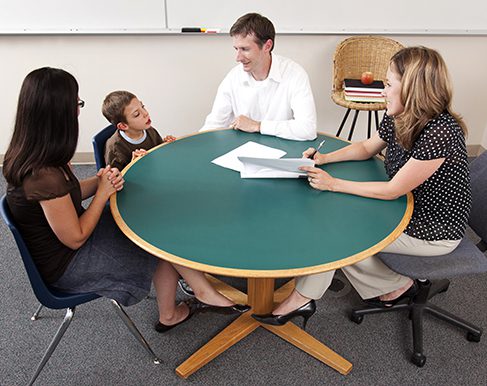
by Tim Seldin | Communication, MFA, Montessori Parenting, Montessori Teachers, Parent-Teacher Communication, School Leadership
We are often asked by Montessori teachers and parents, ‘when do most Montessori schools start incorporating letter grades, if ever?’ When teachers assign letter or numerical grades, they are evaluating children either against the other students in the same class, or against an arbitrary external standard and set of expectations. As Alfie Kohn and many […]
To continue reading, you will need to choose a subscription plan.

by Alfie Kohn | MFA, Montessori Education, Montessori Parenting, Montessori Teachers, School Leadership
Standardized testing has swelled and mutated, like a creature in one of those old horror movies, to the point that it now threatens to swallow our schools whole. (Of course, on “The Late, Late Show,” no one ever insists that the monster is really doing us a favor by making its victims more “accountable.”) But […]
To continue reading, you will need to choose a subscription plan.
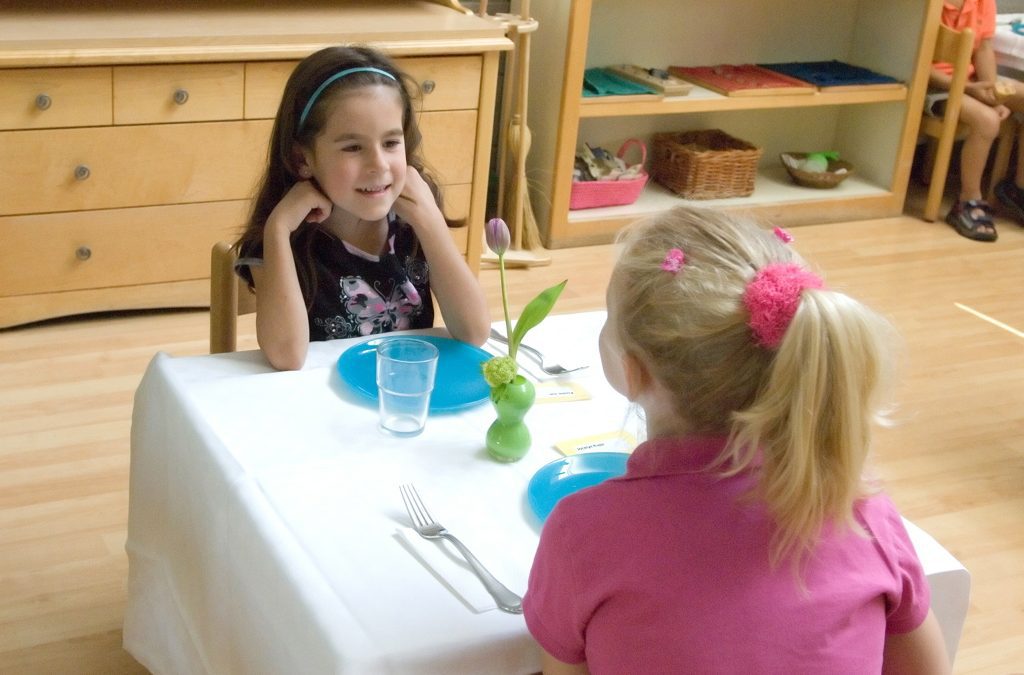
by Tim Seldin | Early Adolescence (12-15), Educational Program Coordination, Empowerment, Kindergarten, Later Adolescence (15-18), Lower Elementary (6-9), Mixed Ages, Montessori Administrators, Montessori Curriculum, Montessori Education, Montessori Middle School, Montessori Secondary / High School, Montessori Teachers, Practical Life, Primary (3-6), The International Montessori Council, Upper Elementary (9-12)
By Tim Seldin and Jonathan Wolff The exercises in Practical Life are the very heart of Montessori education. As young children wash tables, pour liquids, polish silver, sweep and dust, they are developing the inner aptitudes of calmness, order, concentration, coordination, and fine motor skills. At the same time, through the process of learning to […]
To continue reading, you will need to choose a subscription plan.
by Terri Sherrill | Empowerment, Montessori Education, Montessori Parenting, Montessori Teachers, Primary (3-6)
After Christmas, a mother walked up to me in the hall to tell me about her son. He is in my class and I teach three to six year olds. She said, ” My son got this new building set for Christmas. But no matter what he did, the thing kept falling apart.” Then she […]
To continue reading, you will need to choose a subscription plan.
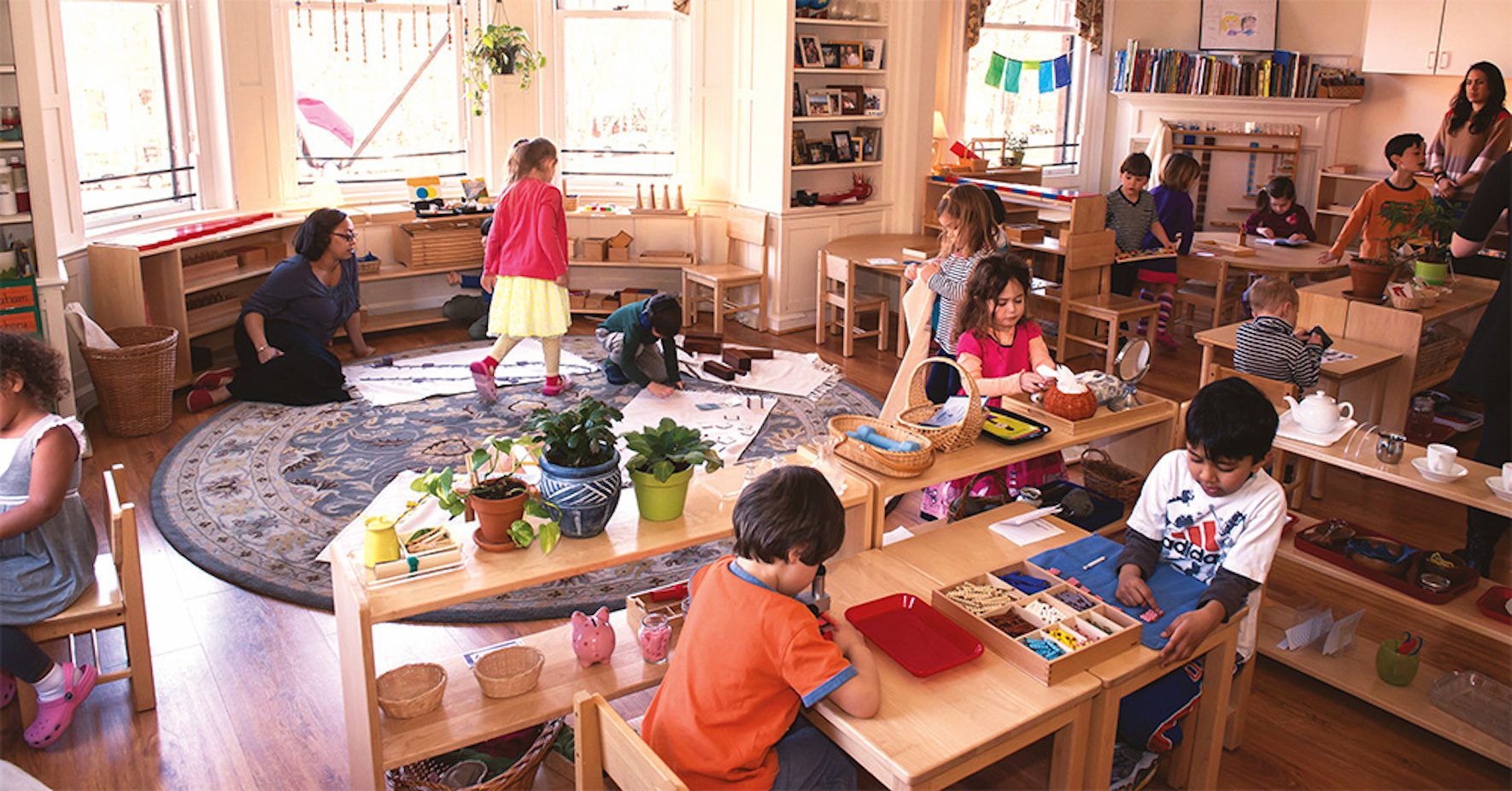
by Tim Seldin | Communication, Montessori Education, Montessori Teachers, Parent-Teacher Communication, School Leadership, The International Montessori Council
This article was written in 1996. Our current practice is somewhat different, but we continue our search for a comfortable balance between freely chosen individually paced work, and a scheme to keep parents informed about what their children are doing in school. The article needs to be updated, and will be. These days we use […]
To continue reading, you will need to choose a subscription plan.

by The Montessori Foundation Staff | MFA, Montessori Teachers
Because Montessori believes in individually paced academic progress, and encourages children to explore their interests rather than simply complete work assigned by their teachers, we don’t assign grades or rank students within each class according to their achievement. At the elementary level, students will often prepare a monthly self-evaluation of the previous month’s school work. […]
To continue reading, you will need to choose a subscription plan.

by The Montessori Foundation Staff | MFA, Montessori Teachers
by Matt Levin I have twenty years worth of photographs I took at school; seven three-ring binders full, and, nowadays, 2 discs of CD-R. I began taking pictures, my first year at school, because the kids excited me, Montessori excited me, and, well, I take pictures. I kept taking pictures, because I realized I would […]
To continue reading, you will need to choose a subscription plan.
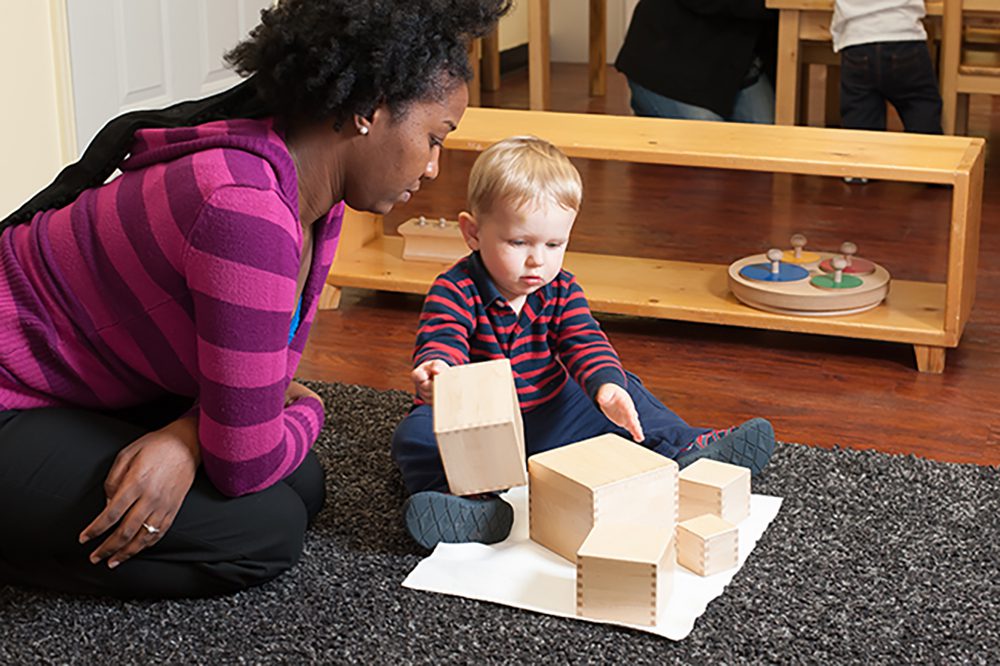
by Matthew Rich | Discipline, MFA, Montessori Education, Montessori Teachers, Psychology
The pre-eminent psychologist, Mihaly Csikszenthihalyi’s, famous inquiries into the psychology of ‘optimal experience’ have reshaped the way in which many disciplines – from sport to business management – look at concentration. His theory has explored a deeply satisfying state of consciousness, which he calls flow. I believe that this theory has much to offer to […]
To continue reading, you will need to choose a subscription plan.

by Sharon Caldwell | Child's Work, Family Resources, MFA, Montessori Education, Montessori Family Life, Montessori Parenting, Montessori Teachers, Parent Education, Parenting on the Same Page
It makes no sense to me that a pedagogical approach based on spontaneous activity and free choice in the classroom would presume to dictate what a child should be doing at home. The idea of assigning homework is appropriated from the conventional schooling paradigm – sometimes because Montessori teachers have insufficient faith in the child […]
To continue reading, you will need to choose a subscription plan.

by Paul Epstein, PhD | Challenging Behaviors, Computers in the Classroom, Lower Elementary (6-9), MFA, Montessori Education, Montessori Teachers, Primary (3-6)
by Dr. Paul and Ann Epstein Computers in Montessori early childhood classroom deserve careful study. Just as Dr. Maria Montessori scientifically observed children and developed her didactic materials, we must also completely examine a computer’s benefits and barriers to learning. We believe that computers are tools for thinking and communication. We further believe that computers […]
To continue reading, you will need to choose a subscription plan.
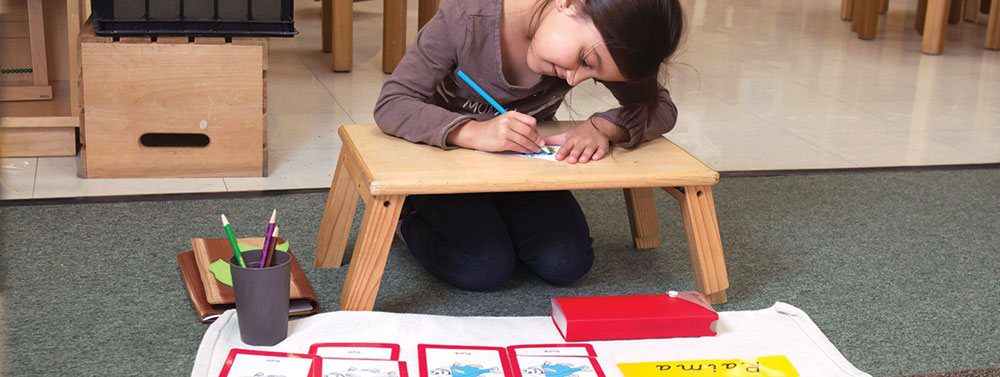
by Maren Stark Schmidt | Child's Work, Early Adolescence (12-15), Emotional Intelligence (EQ), Later Adolescence (15-18), Lower Elementary (6-9), MFA, Mindfulness, Montessori Education, Montessori Teachers, Upper Elementary (9-12), Young Adults
Tired and agitated, Sara got ready for bed. What had happened to the day? She had woken up fresh that morning, ready to have a productive day. During breakfast, Sara’s assistant had called to alert Sara that she wouldn’t be in to copy the reports for the next day’s meeting. When Sara went to make […]
To continue reading, you will need to choose a subscription plan.

by The Montessori Foundation Staff | Early Adolescence (12-15), Montessori Education, Outdoor Education / Resources, Primary (3-6), School Resources, The International Montessori Council, Upper Elementary (9-12), Year Round Schooling
Download File This is a PDF of a PowerPoint presentation about organizing summer programs.
To continue reading, you will need to choose a subscription plan.

















